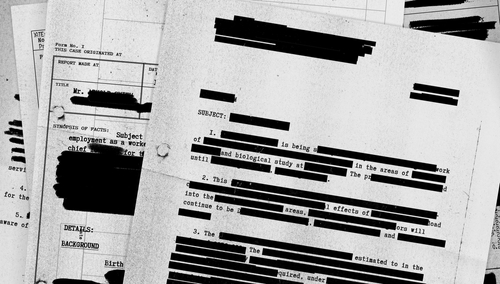Politics
Trump’s Home Raid By The FBI Proves Nobody is Safe in This Country

The “affidavit” supporting the Trump raid has finally been released. More than 20 of 38 pages are redacted. Even the list of redaction reasons is censored, except for “Agent Safety” references.
Redaction is expected. Unredacted portions don’t corroborate the warrant’s basis or execution, which is shocking. We now see why the DOJ wouldn’t share the affidavit.
The affidavit seems to have omitted the legal and factual foundation for probable cause that Trump improperly took or possessed sensitive documents in his home. For the warrant to pass constitutional review, the redacted portions must describe how Trump obtained top secrets he didn’t declassify with the aim to harm the U.S. or benefit from the sensitive material. It’s hard to understand why the DOJ and FBI are pursuing a former president and leader of the opposition party.
With no further, the declassified portions left impartial Americans concerned that the DOJ and FBI disagreed with Trump’s attorneys on what he could lawfully keep and took matters into their own palms.
First, let’s discuss the affidavit’s failure to show reasonable cause for a warrant. The Fourth Amendment protects citizens from unjustified searches and seizures (arrests). The government must have reasonable grounds that a crime has occurred and that the area to be inspected contains proof of that crime to conform with the Fourth Amendment. When the law doesn’t properly define an applicable offense, the circumstances don’t justify the search, or the extent of the investigation exceeds the warrant’s grounds, the search may be deemed unreasonable.
Conjecture is not probable cause, yet that appears to be what got the FBI an order to search Trump’s house.
The FBI’s affidavit does not demonstrate probable cause that Trump was participating in removing sensitive files from the White House or improperly storing them at Mar-a-Lago. This claim is based on accusations that 15 boxes were delivered to the National Archives from Mar-a-Lago this year under the Presidential Records Act and contained classified papers. The FBI’s proposal for a warrant to search Trump’s home was based on their supposition that Trump likely sent these files from Mar-a-Lago. This implies there is reasonable suspicion that there is additional classified material at this place, that Trump is in custody of these records, and that unauthorized actions were taken around these documents.
Nothing in the classified affidavit shows any evidence that classified materials stayed at Mar-a-Lago or that Trump had them.
Unsealed Mar-a-Lago affidavit reveals Biden gang had no case against Trump: “No citizen of this land, no matter who they are, should be subjected to a law enforcement action where there is an absence of evidence that anything illegal occurred.” https://t.co/s7PULKbDTx
— Tom Fitton (@TomFitton) August 29, 2022
The FBI’s affidavit contains no evidence that the purported secret papers were improperly obtained or used. The affidavit skirted over credible legal defenses supporting Trump’s claimed possession and neglected to address whether it had the jurisdiction to charge a former U.S. president. The magistrate judge who issued the warrant acted similarly.
Given the unusual nature of the case, where the law treats presidents and past presidents differently than the ordinary person, the lack of a legal study on whether the DOJ could bring a case against Trump is remarkable. DOJ’s Office of Legal Counsel produces legal papers on these subjects. If a memo exists, its analysis doesn’t appear in the affidavit or warrant. The lack of legal analysis should have been enough to deny the search request, and that it wasn’t should give Americans pause, regardless of their opinion of Trump.
As far as substantiation or legal analysis, the only thing we’ve got from the declassified affidavit is that the FBI merely said there were possibly illicit documents at Mar-a-Lago, and this is prohibited. On this hunch, a warrant was issued to search a previous president’s home.
Second, Donald Trump’s home does not soothe concerns about the government’s ability to raid a residence despite an embarrassingly weak foundation. Even the most fervent civil liberties activists seem willing to overlook Trump’s civil liberty abuses. Reread the affidavit if you think this warrant would end your hostilities. Replace Trump with your name.
This challenge is not meant to chasten Trump critics for their views on him or his ideology but to warn individuals who claim to care about Americans’ liberties and rights that they are not untouchable. If the FBI can raid Trump’s home based on a supposition, what’s left to safeguard you, your home, or your personal space?
Fourth Amendment protections are essential, but their continuation depends on every American wanting the same. If it can happen to someone you don’t like, it can happen to you.

